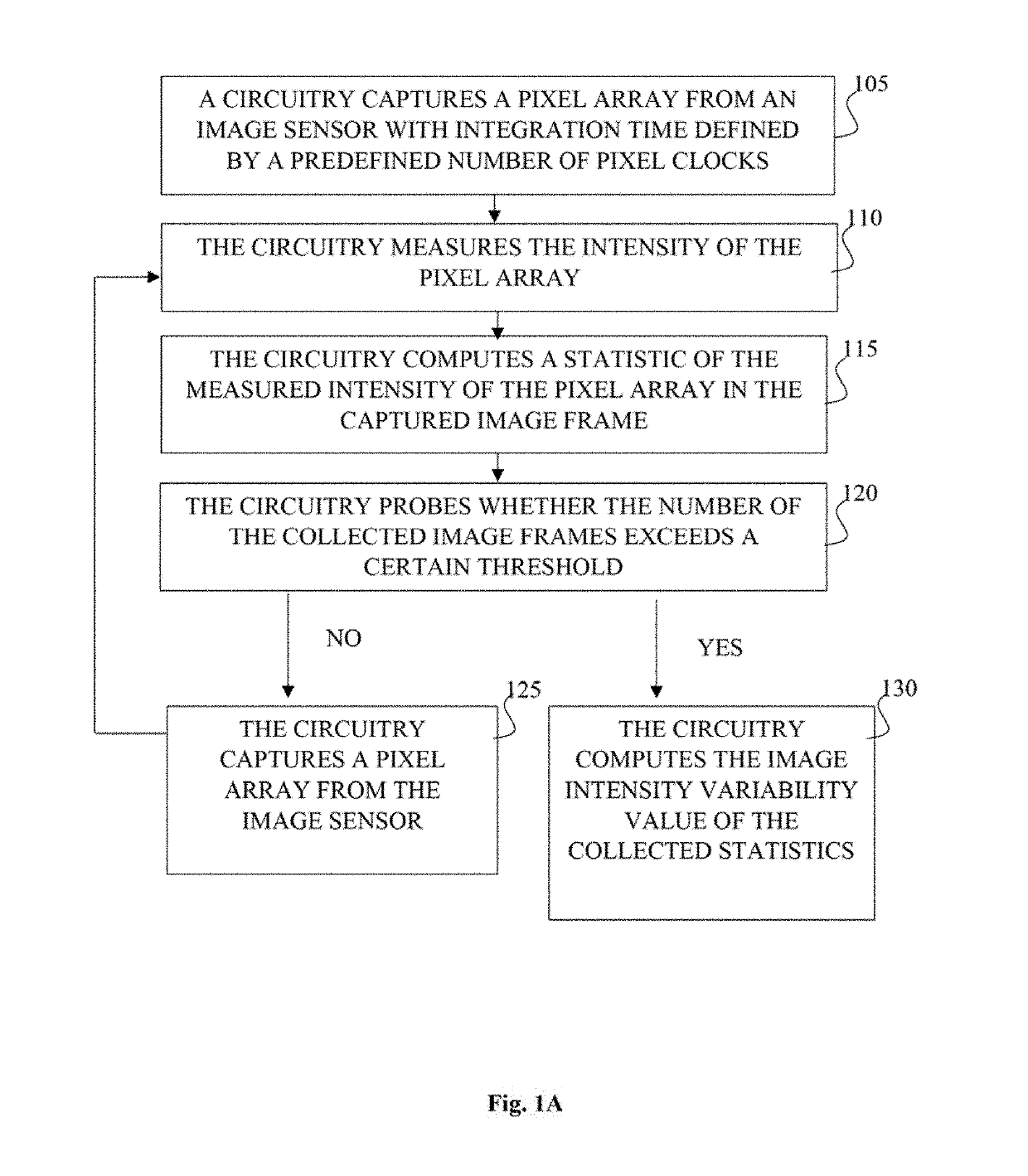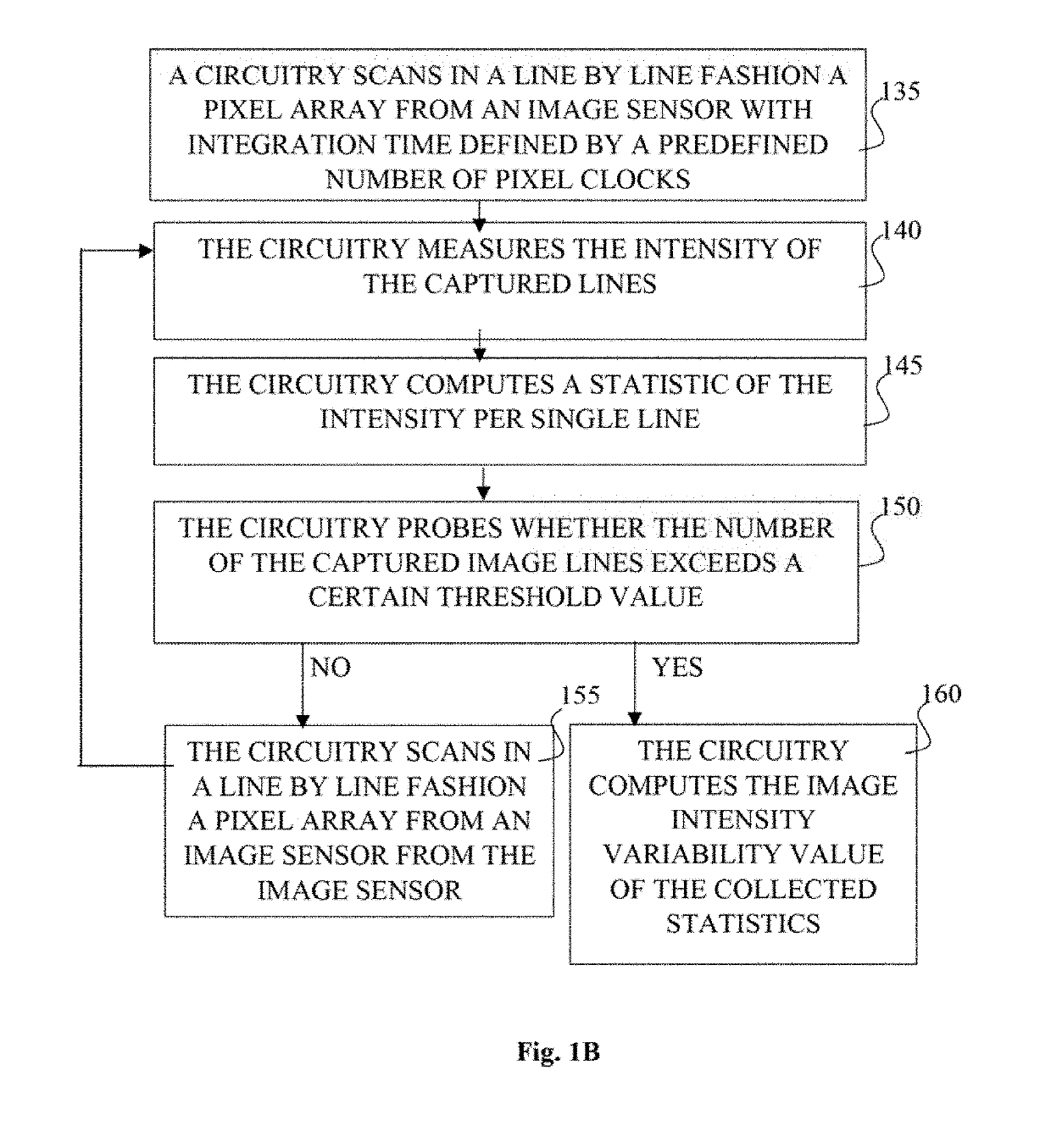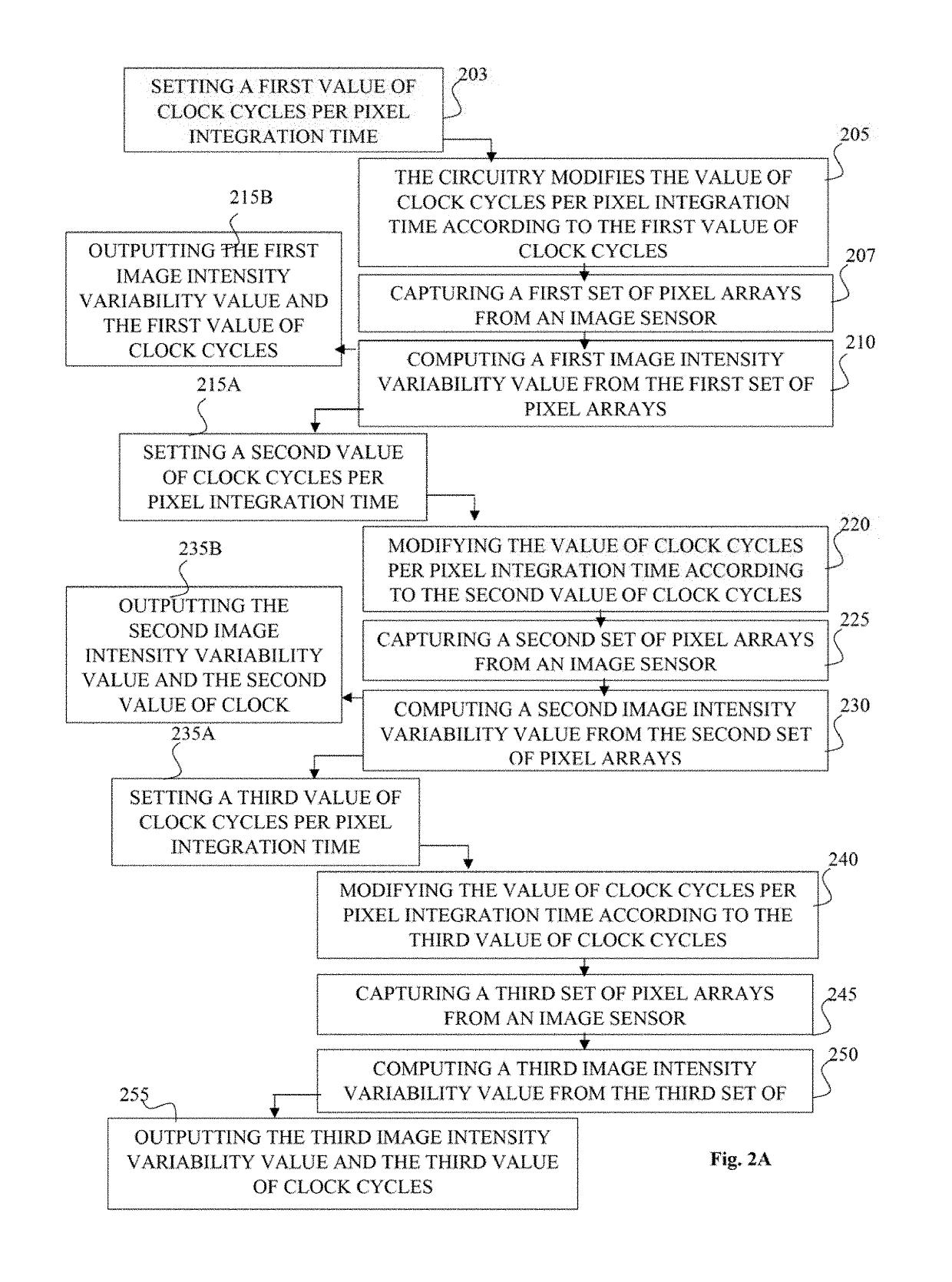Method and system to calibrate a camera clock using flicker
a technology of camera clock and flicker, applied in the field of digital devices, can solve the problems of high frequency of lighting, flickering effect in the digital, negatively affecting image analysis algorithms, etc., and achieve the effect of reducing flickering phenomena in electronic devices and high degree of synchronization
- Summary
- Abstract
- Description
- Claims
- Application Information
AI Technical Summary
Benefits of technology
Problems solved by technology
Method used
Image
Examples
Embodiment Construction
[0025]The present invention discloses a method operable on a circuitry within an image sensor, wherein the circuitry may be implemented or connected to electronic devices and designed to capture multiple images or lines by the image sensor. Such an image sensor can comprise a photosensitive cell array designed to transduce optical image of objects formed on the photosensitive cell array by incidence of light, into corresponding electronic signals, denoted herein as a captured image frame, representing the image captured by the image sensor.
[0026]The method disclosed by the present invention is designed to utilize image intensity variability value to synchronize the clock rate of the electronic device by ensuring that the number of clock cycles per pixel integration time may be synchronized, hence occur at the same rate as the frequency of the illumination frequency.
[0027]The term “clock rate” refers to the frequency at which a processor such as a central processing unit is running. ...
PUM
 Login to View More
Login to View More Abstract
Description
Claims
Application Information
 Login to View More
Login to View More - R&D
- Intellectual Property
- Life Sciences
- Materials
- Tech Scout
- Unparalleled Data Quality
- Higher Quality Content
- 60% Fewer Hallucinations
Browse by: Latest US Patents, China's latest patents, Technical Efficacy Thesaurus, Application Domain, Technology Topic, Popular Technical Reports.
© 2025 PatSnap. All rights reserved.Legal|Privacy policy|Modern Slavery Act Transparency Statement|Sitemap|About US| Contact US: help@patsnap.com



